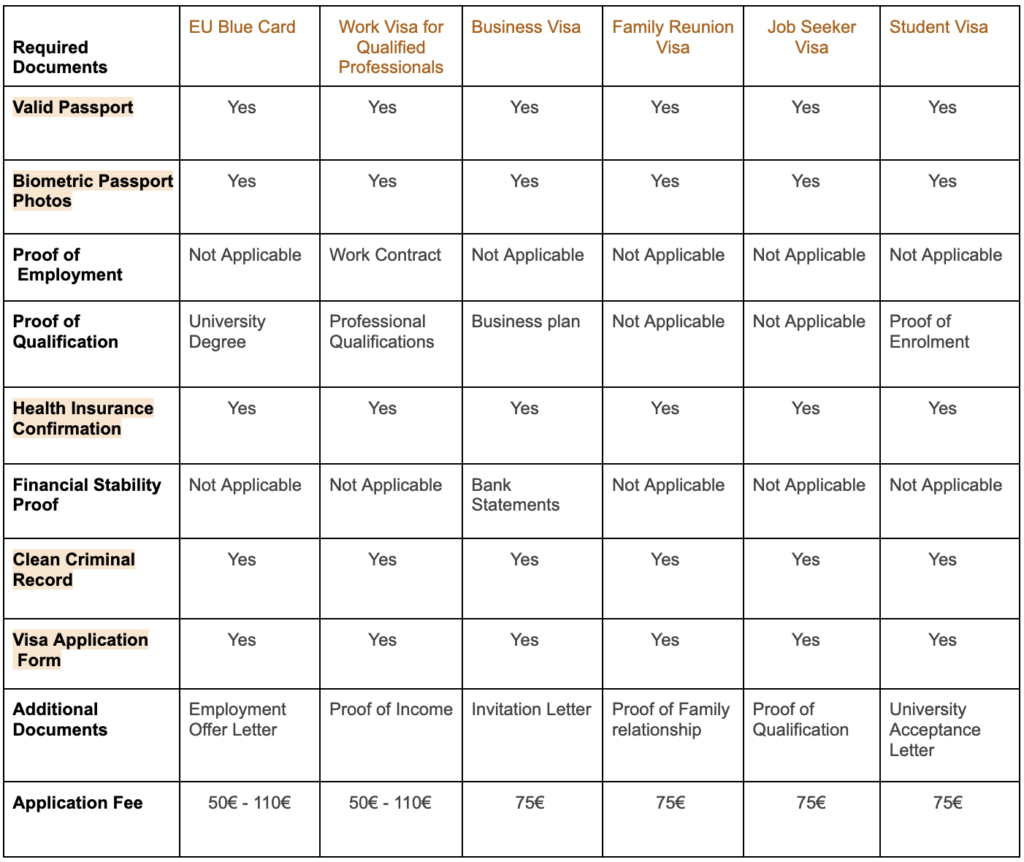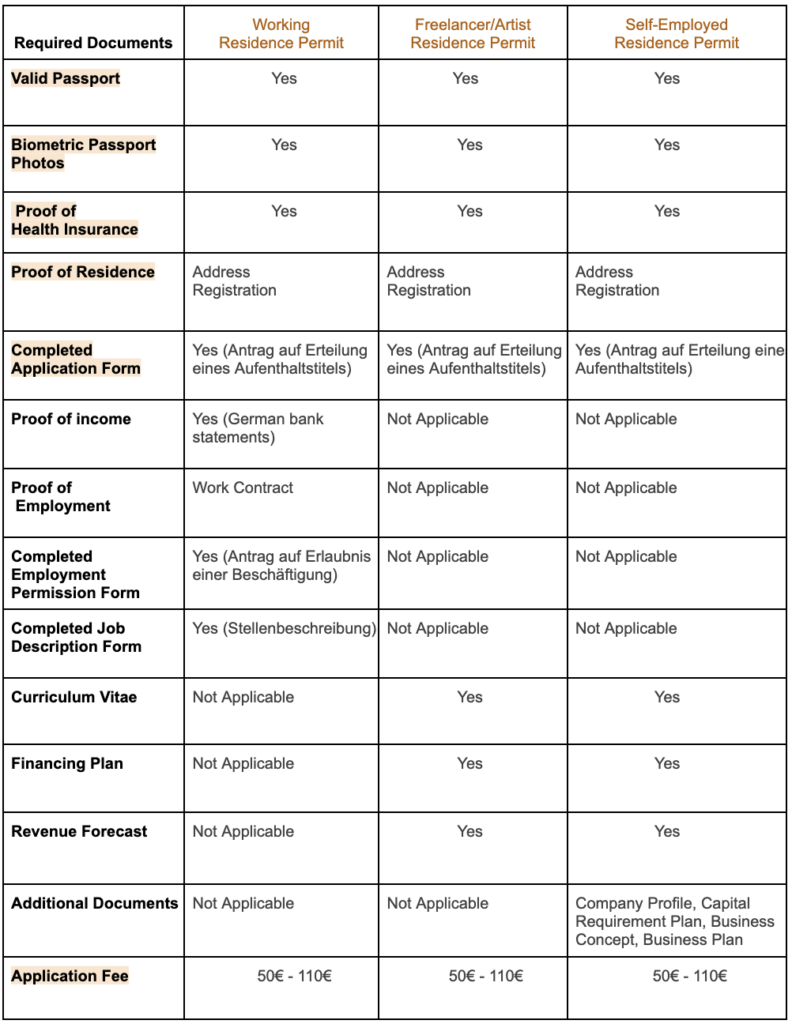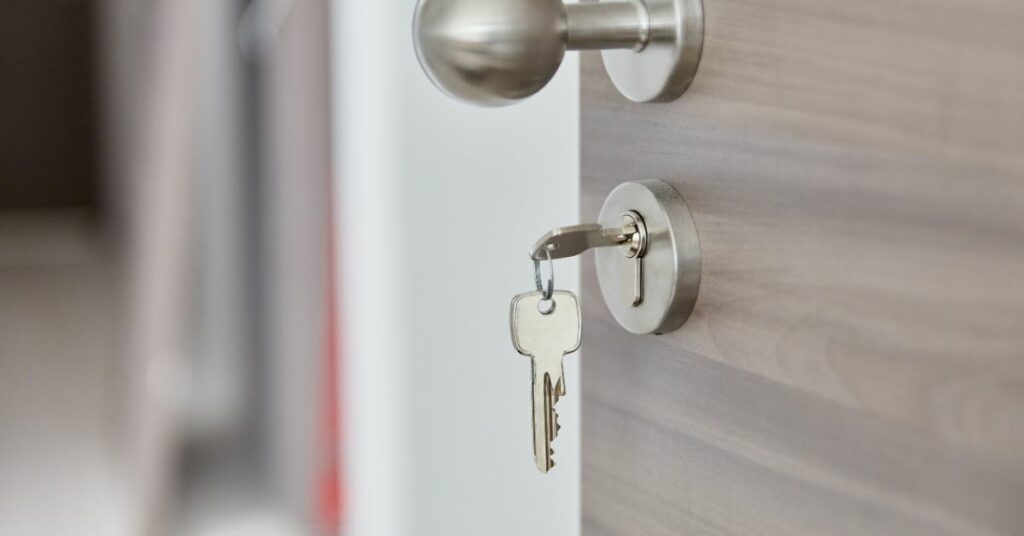Das Wichtigste in Kürze
- Visa und Aufenthaltstitel unterscheidet sich voneinander (Visa = 90 Tage, z.B. zum Reisen; Aufenthaltstitel verlängert den Aufenthalt weiter, z.B. langfristig in DE leben und arbeiten)
- Visumantragsprozess und die Anforderungen variieren je nach deiner Staatsangehörigkeit und der deutschen Botschaft oder dem Konsulat, bei dem du den Antrag stellst
- Bei deinem ersten Aufenthaltstitel erhältst du eine Aufenthaltserlaubnis, ein befristeter Titel, der ein Ablaufdatum hat und den du vor Ablauf verlängern kannst
Wie du dein Visum und deine Aufenthaltsgenehmigung erhältst
Der Unterschied zwischen Visum und Aufenthaltstitel
Bevor wir in den Antragsprozess einsteigen, lass uns den Unterschied zwischen einem Visum und einem Aufenthaltstitel klären.
Ein Visum erlaubt dir, nach Deutschland einzureisen und bis zu 90 Tage zu bleiben, sei es für Reisen, Geschäftliches oder Studium.
Ein Aufenthaltstitel hingegen verlängert deinen Aufenthalt für einen längeren Zeitraum.
Visumsantrag
Je nach deiner Staatsangehörigkeit musst du vor deiner Einreise nach Deutschland ein Visum beantragen. Erst nach deiner Ankunft kannst du den deutschen Aufenthaltstitel beantragen.
Verstehen des Visumantrags:
Schauen wir uns zunächst an, wie man ein Visum beantragt (So sieht ein Visumsantrag aus).
Zuerst musst du prüfen, welches Visum dem Zweck deines Aufenthalts in Deutschland entspricht, sei es zum Studieren, Arbeiten oder Reisen. Schau dir den Abschnitt „Arten von Visa“ für mehr Informationen an.
Dann überprüfe die Anforderungen für den Visumantrag. Diese Liste findest du normalerweise auf der Website der deutschen Botschaft oder des Konsulats in deinem Wohnsitzland.
Unabhängig vom Visumtyp benötigst du in der Regel folgende Dokumente:
- Gültiger Reisepass
- Biometrische Passfotos
- Nachweis der Beschäftigung oder eines Jobangebots (falls zutreffend)
- Nachweis der Qualifikation (wie Hochschulabschluss oder berufliche Zertifikate)
- Krankenversicherungsbestätigung
- Nachweis der finanziellen Stabilität (wie Kontoauszüge oder Einkommensnachweise)
- Polizeiliches Führungszeugnis
- Visumantragsformular
- Zusätzliche Dokumente (variieren je nach Visumtyp)
Nachdem du alle erforderlichen Dokumente gesammelt hast, kannst du einen Termin bei der deutschen Botschaft oder dem Konsulat in deinem Wohnsitzland vereinbaren, um deinen Visumantrag einzureichen. Während dieses Termins musst du die erforderlichen Dokumente vorlegen und die nicht erstattungsfähige Gebühr von 75 €, die für alle Arten von Visa für langfristige Aufenthalte in Deutschland erhoben wird, bezahlen.
Sobald dein Visum fertig ist, kannst du mit den Vorbereitungen für deine Reise nach Deutschland beginnen. Da du planst, langfristig zu bleiben, solltest du alle persönlichen Dokumente mitbringen, einschließlich Geburtsurkunden, Bildungsabschlüsse, berufliche Zeugnisse und relevante Zertifikate.
Beachte, dass der Visumantragsprozess und die Anforderungen je nach deiner Staatsangehörigkeit und der deutschen Botschaft oder dem Konsulat, bei dem du den Antrag stellst, variieren können.
Antrag auf Aufenthaltstitel
Sobald du in Deutschland angekommen bist, kannst du einen Aufenthaltstitel beantragen, um deinen Aufenthalt zu verlängern.
Zunächst musst du den passenden Aufenthaltstitel für deine geplanten Aktivitäten in Deutschland identifizieren. Das könnte z.B. Beschäftigung, Freiberuflichkeit, Studium oder andere Zwecke sein.
Für den Aufenthaltstitel benötigst du in der Regel folgende Dokumente:
- Deinen gültigen Reisepass
- Antragsformular für einen Aufenthaltstitel
- Zwei aktuelle biometrische Passfotos
- Führungszeugnis
- Krankenversicherungsbestätigung
- Nachweis eines Jobangebots
- Zusätzliche Dokumente (variieren je nach Art des Aufenthaltstitels)
Für eine Beschäftigung: Einkommensnachweis, Arbeitsvertrag, Nachweis der Krankenversicherung, Wohnsitznachweis, ausgefüllte Antragsformulare und Antragsgebühr.
Für Freiberufler/Künstler: Lebenslauf, Finanzierungsplan, Umsatzprognose, Nachweis der Krankenversicherung, Wohnsitznachweis, ausgefüllte Antragsformulare und Antragsgebühr.
Für Selbstständige: Zusätzliche Dokumente wie ein Firmenprofil, Kapitalbedarfsplan, Geschäftskonzept und Businessplan können erforderlich sein.
Dann sende eine E-Mail oder gehe zum Ausländeramt und reiche deinen vollständigen Antrag zusammen mit allen erforderlichen Dokumenten ein. Sei auf ein Interview vorbereitet, falls notwendig.
Nach Einreichung deines Antrags wird das Ausländeramt deinen Fall prüfen. Die Bearbeitungszeiten können variieren, aber sobald dein Antrag genehmigt ist, erhältst du einen Termin, um deinen Aufenthaltstitel abzuholen. Wenn es dein erster Aufenthaltstitel ist, erhältst du eine Aufenthaltserlaubnis, ein befristeter Titel, der ein Ablaufdatum hat und den du vor Ablauf verlängern kannst.
Erforderliche Dokumente für den Visumantrag
Erforderliche Dokumente für den Antrag auf eine Aufenthaltserlaubnis
Fazit
Den deutschen Aufenthaltstitel zu bekommen, ist ein wichtiger Meilenstein auf deiner Umzugsreise. Wenn du diese Schritte befolgst und alle notwendigen Dokumente bereithältst, wirst du den Prozess problemlos meistern.
Hoffentlich war es hilfreich für dich.
Willkommen in Deutschland und genieße dein neues Abenteuer!
Download "Auf einen Blick: Visum für qualifizierte Arbeitskräfte"
- Offizielles Dokument des Bundesministerium für Wirtschaft und Klimapolitik

Die wichtigsten Fragen
Wer muss ein Visum für Deutschland beantragen?
Welche Dokumente benötige ich für einen Visumantrag für Deutschland?
Die erforderlichen Dokumente variieren je nach Visumtyp, beinhalten aber in der Regel:
- Gültiger Reisepass
- Biometrische Passfotos
- Visumantragsformular
- Nachweis der finanziellen Mittel
- Krankenversicherungsnachweis
- Nachweis der Unterkunft
- Polizeiliches Führungszeugnis
- Zusätzliche Dokumente je nach Visumtyp (z.B. Arbeitsvertrag, Studienzulassung)
Eine ausführliche Übersicht findest du weiter oben in diesem Beitrag.







